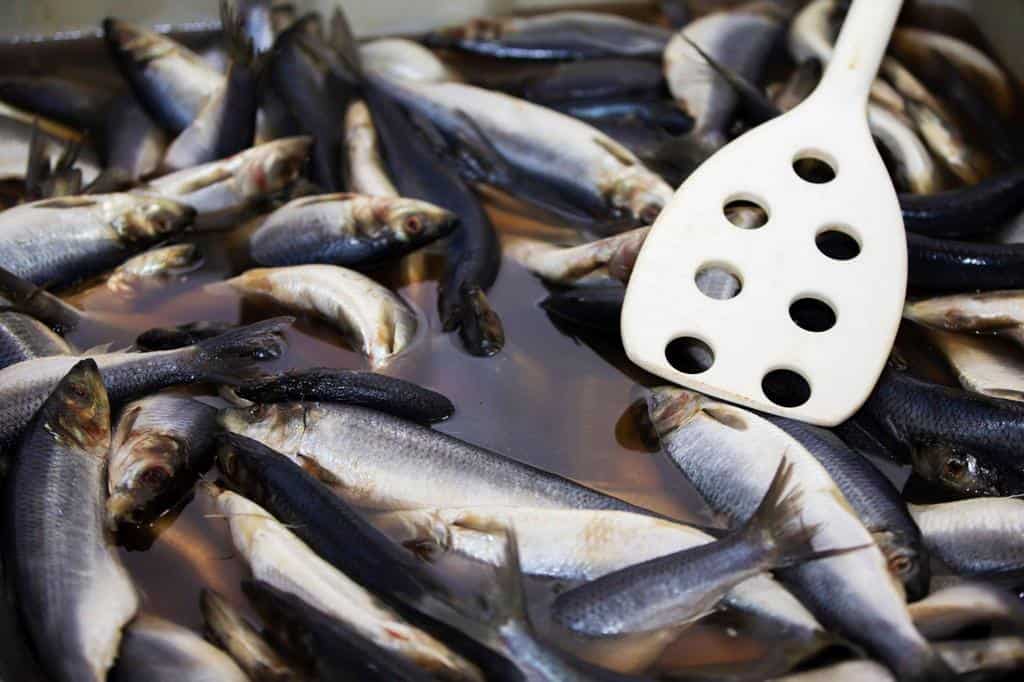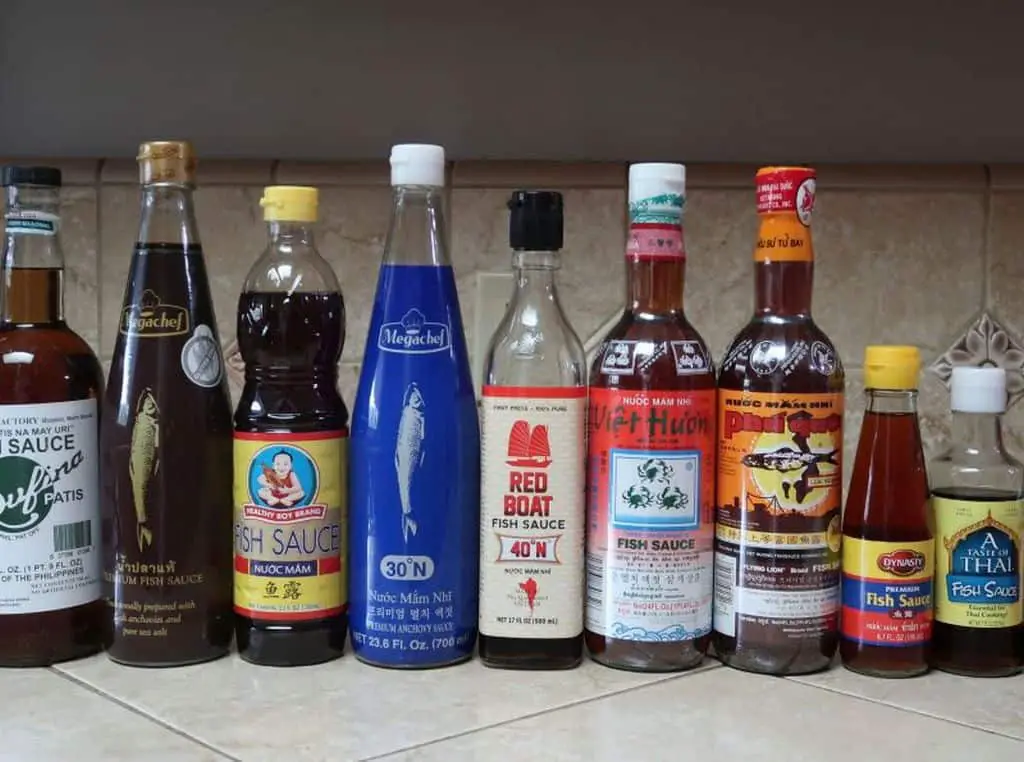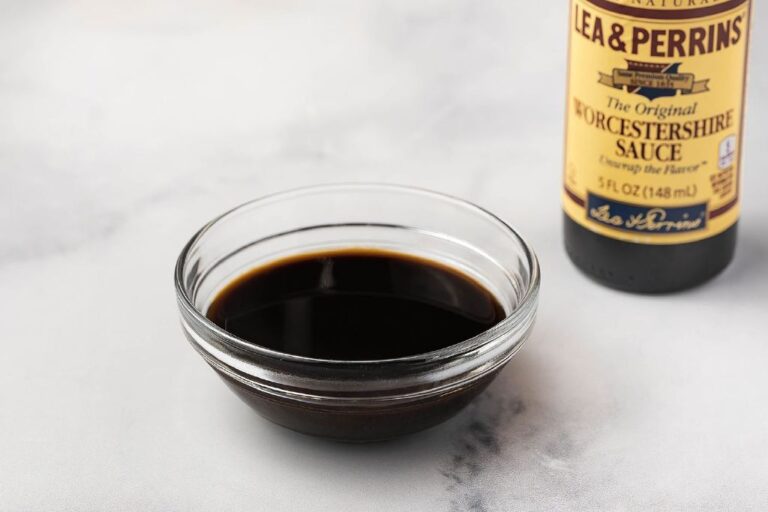Why Does Fish Sauce Smell So Bad? The Science Behind the Pungent Aroma

Have you ever uncorked a bottle of fish sauce to find a strong aroma that made your nose wrinkle? If so, you’re not alone. Fish sauce, that ubiquitous condiment found in many Asian cuisines, often comes with a reputation for having a rather unpleasant smell.
But have you ever wondered why that is? What causes fish sauce to emit such a strong and distinctive odor?
Fish sauce is a unique and widely used condiment in many cuisines around the world. From its pungent aroma to its umami flavor, fish sauce adds a distinctive taste to various dishes. However, one aspect of fish sauce often leaves people puzzled: its strong and somewhat unpleasant smell.
In this article, we’re going to dive deep into the fascinating world of fish sauce and explore the scientific reasons behind its infamous smell. From the fermentation process to the breakdown of proteins, we’ll uncover the secrets behind this aromatic enigma.
So, fasten your seatbelts and prepare to embark on a journey through the olfactory wonders of fish sauce. Get ready to unravel the mystery of why fish sauce smells so bad and perhaps gain a newfound appreciation for this flavorful ingredient along the way.
Understanding Fish Sauce

To truly appreciate the essence of fish sauce, it is important to delve into its rich history and understand its cultural significance. Fish sauce is a condiment that has stood the test of time, with its origins tracing back thousands of years to the ancient civilizations of Southeast Asia.
It holds a prominent place in the culinary traditions of countries such as Vietnam, Thailand, and the Philippines, where it is cherished for its unique flavor and its ability to elevate dishes to new heights.
Anchovies or other small fish are the primary stars of this condiment. These fish, abundant in coastal regions, are carefully selected for their flavors and quality. At its core, fish sauce is a product of fermentation, a process that harnesses the power of time and nature to transform humble ingredients into something extraordinary.
The Fermentation Process
The fish are typically layered with salt in large wooden barrels or vessels, often using a ratio of fish to salt that has been passed down through generations. This ancient method of production allows for the gradual breakdown of proteins and enzymes within the fish, resulting in the development of the signature umami taste that defines fish sauce.
The distinctive smell of fish sauce arises during the fermentation process. The fermentation process itself is a delicate dance of natural microbiological activity. The salt acts as a preservative, creating an environment that discourages the growth of harmful bacteria while encouraging the proliferation of beneficial bacteria.
These beneficial bacteria work in harmony with enzymes present in the fish, breaking down proteins into smaller compounds and releasing savory and aromatic compounds. This intricate microbial ecosystem is responsible for the complex flavors, aroma, and depth that are characteristic of well-crafted fish sauce.
The duration of the fermentation process varies depending on factors such as climate, regional traditions, and the desired flavor profile. It can take anywhere from several months to years for the fish sauce to reach its optimal maturity.
During this time, the fish sauce gradually develops its distinctive amber color, intense umami notes, and tantalizing aroma that evokes the coastal origins of its ingredients.
Amines and Sulfur Compounds
As the proteins in the fish break down, amines are produced. Amines are organic compounds that contain nitrogen and are often associated with strong odors. In the case of fish sauce, the most prominent amine responsible for the foul smell is trimethylamine (TMA). TMA has a distinct odor similar to that of rotten fish or ammonia.
Additionally, the breakdown of sulfur-containing amino acids produces volatile sulfur compounds. These compounds, including dimethyl sulfide (DMS) and hydrogen sulfide (H2S), contribute to the fishy and sulfurous smell of fish sauce.
The Role of Fermentation Time
The fermentation time of fish sauce plays a crucial role in its smell. The longer the fermentation process, the more time the proteins have to break down into smaller compounds, intensifying the aroma. Different cultures and regions have varying preferences for the fermentation duration, resulting in fish sauces with different strengths of smell.
The fermentation process typically takes 3–12 months, during which fish and salt are thoroughly mixed at a ratio of 1:3. The resulting mash is then filtered, yielding a liquid containing fish extract, which is the fish sauce.
The fermentation process is done in fermentation tanks, and as the fermentation progresses, friendly bacteria resistant to the excessive salt used in the fermentation start taking a foothold and continuing the fermentation process. The resulting liquid is then pressed, yielding a salty, fishy liquid.
Quality and Production Methods
The quality and production methods of fish sauce also influence its smell. Traditional fish sauce is typically made using natural fermentation in large wooden barrels, allowing the flavors to develop over an extended period. This traditional method often results in a more complex and pronounced aroma.
In contrast, some commercial fish sauces are made using accelerated fermentation techniques or chemical additives to speed up the process. While these methods may reduce the fermentation time, they can also impact the overall quality and result in a less desirable smell.
It’s worth noting that not all fish sauces are created equal. Higher-quality fish sauces, often labeled “premium” or “artisanal,” undergo a more meticulous production process.
These sauces are made with high-quality fish, longer fermentation periods, and minimal additives. They tend to have a more refined aroma and a superior taste compared to their mass-produced counterparts.
Does Fish Sauce Lose Its Flavor Over Time?
Fish sauce, like many condiments, does not necessarily lose its flavor over time. The smell may undergo changes due to oxidation and prolonged exposure to the air.
Over an extended period, fish sauce may darken in color and develop a stronger and more intense flavor. However, these changes are gradual, and fish sauce can still be used even if it has been stored for a long time.
To maintain the quality and flavor of fish sauce, you need to store it properly in a cool and dark place, tightly seal it after each use, and refrigerate the fish sauce after opening. These practices can help preserve the flavor and characteristics of fish sauce for an extended period of time.
While fish sauce may develop a stronger flavor with time, it is important to note that the taste and aroma of fish sauce are subjective. Some people may prefer the aged and more intense flavor, while others may prefer the milder taste of fresher fish sauce.
If you find that your fish sauce has become too strong or overpowering, you can dilute it with a small amount of water or use it sparingly in recipes. Additionally, adjusting the amount of fish sauce used in cooking can help control the flavor intensity according to personal preference.
It’s always a good idea to taste the fish sauce before using it in a dish, especially if it has been stored for a long time. This allows you to gauge its flavor profile and adjust the quantity accordingly, ensuring the desired balance in your recipes.
Remember, proper storage, handling, and occasional taste testing can help you make the most of your fish sauce and enjoy its unique flavors to the fullest.
Fish Sauce Alternatives and Variations
If you’re not a fan of the strong smell of fish sauce or if you have dietary restrictions, there are alternative options available. Vegetarian and vegan alternatives to fish sauce can be found in stores or made at home using ingredients like soy sauce, miso paste, or fermented vegetables. These alternatives can provide a similar umami flavor without the fishy aroma.
Additionally, different cultures have their own variations of fish sauce, each with its own unique characteristics. Thai fish sauce, known as “nam pla,” has a strong and salty flavor. Vietnamese fish sauce, called “nuoc mam,” is milder and slightly sweeter. Exploring these variations can open up new flavors and culinary experiences.
Conclusion
While the smell of fish sauce may be off-putting at first, it is important to remember that smell and taste are closely linked. The strong aroma of fish sauce is what gives it its unique and robust flavor. Many cuisines have incorporated fish sauce into their traditional dishes for centuries, valuing its ability to add depth and complexity to recipes.
The strong smell of fish sauce is a result of the fermentation process and the breakdown of proteins into amines and sulfur compounds. While it may be initially overwhelming, the aroma mellows during cooking and enhances the overall taste of dishes.
Fish sauce, when used in moderation and with complementary ingredients, adds a unique umami flavor that is cherished in many cuisines around the world. So don’t let the smell deter you from exploring the world of fish sauce and the culinary delights it can bring to your table.
To fully appreciate fish sauce, it is recommended to start with small amounts and gradually increase as you become accustomed to the flavor. The aroma of fish sauce tends to mellow and blend with other ingredients during cooking, resulting in a delicious and well-balanced dish.
FAQs
Is the strong smell of fish sauce normal?
Yes, the strong smell is characteristic of fish sauce and is considered desirable in many Southeast Asian cuisines.
Can the smell of fish sauce be reduced or eliminated?
While the smell cannot be entirely eliminated, you can reduce its intensity by using less or combining it with other ingredients.
Are there any health concerns related to the smell of fish sauce?
The smell of fish sauce itself does not pose health concerns. However, its high salt content should be consumed in moderation.
What are the cultural perspectives on the smell of fish sauce?
In Southeast Asian cultures, the pungent smell of fish sauce is highly valued and signifies its authenticity and quality in traditional dishes.
Are there any alternatives to fish sauce for those who dislike the smell?
Yes, there are alternative options available, such as vegetarian or vegan fish sauce alternatives made with soy sauce or fermented vegetables.
How should I store fish sauce to maintain its quality and aroma?
Fish sauce should be stored in a cool, dark place away from direct sunlight. Some brands may need to be refrigerated after opening a fish sauce bottle, so check the label for specific instructions.
How long does fish sauce last?
Fish sauce has a long shelf life due to its high salt content. Unopened bottles can last for several years, while after opening, fish sauce can remain good for months or even longer if stored properly.





